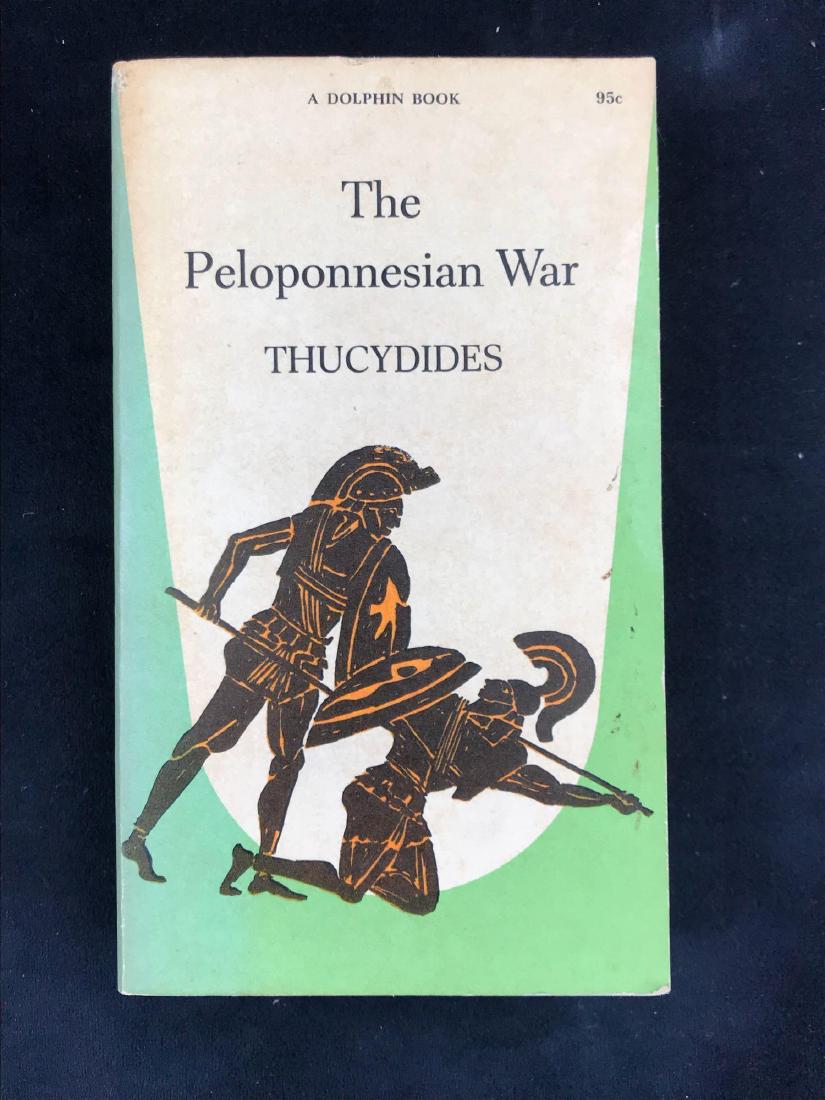

Statue portrait of historian Thucydides outside the Austrian parliament in Vienna. One of the remarkable things about it is how focused it is on the general social response to the pestilence, both those who died from it and those who survived. Thucydides’ description of the plague that struck Athens in 430 BC is one of the great passages of Greek literature.

His focus was the Peloponnesian war fought between Athens and Sparta, and their respective allies, between 431 and 404 BC. Thucydides writes prose, not verse (as Homer and Sophocles do), and he worked in the comparatively new field of “history” (meaning “enquiry” or “research” in Greek). The play Oedipus was probably produced about 429 BC, and the plague of Athens occurred in 430-426 BC. The two works mentioned above were produced at about the same time. Thucydides (c.460-400BC) and Sophocles (490-406BC) would have known one another in Athens, although it is hard to say much more than that for a lack of evidence. Plague narrativesĪbout 270 years after the Iliad, or thereabouts, plague is the centrepiece of two great classical Athenian works – Sophocles’ Oedipus the King, and Book 2 of Thucydides’ History of the Peloponnesian War. The corpse fires burned everywhere and did not stop burning. Terrible was the clash that rose from the bow of silver.įirst he went after the mules and the circling hounds, then let goĪ tearing arrow against the men themselves and struck them. Quiver and the shafts clashed on the shoulders of the god walking angrily. In his heart, carrying on his shoulders the bow and the hooded Apollo is also the archer god, and he is depicted firing arrows into the Greek army with a terrible effect:Īpollo strode down along the pinnacles of Olympus angered Agamemnon, the leading prince of the Greek army, insults a local priest of Apollo called Chryses.Īpollo is the plague god – a destroyer and healer – and he punishes all the Greeks by sending a pestilence among them. Homer’s Iliad, (around 700BC), commences with a description of a plague that strikes the Greek army at Troy.

One such description sits at the very beginning of western literature. What the Greeks called the “plague” ( loimos) features in some memorable passages in Greek literature. These words are Greek in origin, and they point to the fact that the Greeks of antiquity thought a lot about disease, both in its purely medical sense, and as a metaphor for the broader conduct of human affairs. Words like “epidemic” and “pandemic” (and “panic”!) have become part of our daily discourse. The coronavirus is concentrating our minds on the fragility of human existence in the face of a deadly disease.


 0 kommentar(er)
0 kommentar(er)
